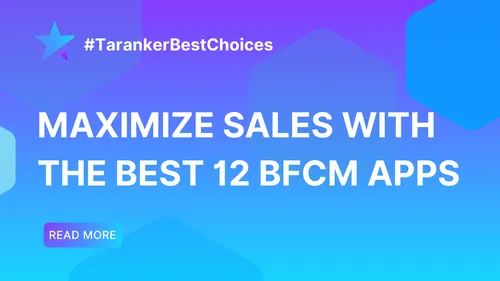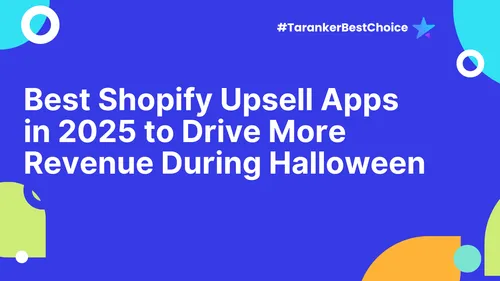In the dynamic landscape of e-commerce, delivering personalized shopping experiences has become a cornerstone for success. Artificial Intelligence (AI) plays a pivotal role in enhancing product recommendation systems, enabling online retailers, especially those on platforms like Shopify, to offer tailored suggestions that resonate with individual customer preferences. This article explores the significance of product recommendations in e-commerce, contrasts traditional methods with AI-driven systems, delves into how AI analyzes customer behavior, outlines the benefits of AI-powered recommendations, and presents case studies showcasing successful implementations.
The Importance of Product Recommendations in E-commerce

Product recommendations are essential tools in the e-commerce sector, serving to enhance the shopping experience and drive sales. Their importance is underscored by several key factors:
-
Increased Sales and Revenue: Personalized recommendations encourage additional purchases, boosting average order values and overall sales.
-
Improved Customer Engagement: Tailored suggestions keep customers engaged, reducing bounce rates and fostering longer browsing sessions.
-
Enhanced User Experience: Relevant product recommendations simplify the shopping process, making it more enjoyable and efficient for customers.
-
Customer Retention and Loyalty: A personalized shopping experience fosters customer loyalty, increasing the likelihood of repeat purchases.
Traditional vs. AI-Powered Product Recommendation Systems

The evolution of product recommendation systems can be observed by comparing traditional methods with AI-driven approaches:
Traditional Recommendation Systems
-
Manual Curation: Early e-commerce platforms relied on human judgment to suggest popular or related products, which was time-consuming and lacked personalization.
-
Simple Algorithms: Utilizing basic data such as purchase history or item popularity, these systems offered generic recommendations that didn't account for individual user preferences.
AI-Powered Recommendation Systems
-
Machine Learning Algorithms: AI analyzes vast datasets to identify patterns and predict products that align with a user's unique tastes and behaviors.
-
Real-Time Data Processing: AI systems process current browsing behavior and contextual data to provide up-to-date and relevant recommendations.
-
Enhanced Personalization: By considering a multitude of factors, including browsing history, demographics, and even social media activity, AI delivers highly personalized product suggestions.
How AI Analyzes Customer Behavior to Make Accurate Recommendations

AI employs several techniques to scrutinize customer behavior and generate precise product recommendations:
-
Data Collection: Gathering data from various touchpoints, including website interactions, purchase history, and social media engagement.
-
Behavioral Analysis: Examining patterns in browsing habits, such as time spent on product pages, click-through rates, and cart additions.
-
Collaborative Filtering: Recommending products based on similarities between users' behaviors and preferences.
-
Content-Based Filtering: Suggesting items with attributes similar to products a user has shown interest in.
-
Contextual Analysis: Incorporating contextual information like location, time of day, and device used to refine recommendations.
By integrating these analyses, AI constructs a comprehensive profile for each user, enabling the delivery of personalized and relevant product suggestions.
Benefits of Using AI for Product Recommendations
Implementing AI-driven product recommendation systems offers numerous advantages:
-
Scalability: AI systems can handle vast amounts of data and user interactions, making them suitable for businesses of all sizes.
-
Real-Time Personalization: AI processes data instantaneously, allowing for dynamic updates to recommendations as user behavior evolves.
-
Increased Conversion Rates: Personalized recommendations align closely with user interests, leading to higher conversion rates.
-
Enhanced Inventory Management: AI insights help predict demand for recommended products, aiding in efficient stock management.
-
Competitive Advantage: Offering a personalized shopping experience differentiates a brand in the crowded e-commerce marketplace.
Case Studies of Successful AI-Powered Product Recommendations in E-commerce

Several e-commerce giants have harnessed AI to revolutionize their product recommendation systems:
Amazon
Amazon's recommendation engine utilizes machine learning algorithms to analyze customer behavior, purchase history, and browsing patterns. This system is responsible for approximately 35% of Amazon's revenue, demonstrating the significant impact of personalized product suggestions.
Netflix
While primarily a streaming service, Netflix employs AI-driven recommendation systems to suggest content based on user viewing habits. This personalized approach has been instrumental in retaining subscribers and increasing engagement.
Stitch Fix
Stitch Fix, an online personal styling service, combines AI algorithms with human expertise to provide personalized clothing recommendations. By analyzing user feedback and preferences, Stitch Fix curates selections that align with individual styles, enhancing customer satisfaction and loyalty.
For Shopify merchants and e-commerce retailers, integrating AI-powered product recommendation systems can lead to enhanced customer experiences, increased sales, and a competitive edge in the market. By leveraging AI technologies to analyze customer behavior and preferences, businesses can deliver personalized shopping experiences that resonate with consumers and drive growth.
Frequently Asked Questions (FAQs)
1. How does AI improve product recommendations in e-commerce?
AI enhances product recommendations by analyzing extensive customer data to identify patterns and preferences, enabling the delivery of personalized and relevant suggestions that align with individual user interests.
2. Are AI-powered recommendation systems suitable for small e-commerce businesses?
Yes, AI solutions are scalable and can be tailored to fit businesses of all sizes. Many platforms offer AI-powered recommendation tools that are accessible and cost-effective for small to medium-sized e-commerce enterprises.
3. What data is essential for AI to generate accurate product recommendations?
✔ Browsing history – Tracks which products customers view most frequently.
✔ Purchase records – Analyzes past purchases to suggest complementary or similar products.
✔ Demographic data – Considers factors like location, age, and gender for more tailored recommendations.
✔ Customer reviews & feedback – AI can learn from customer opinions to refine product suggestions.
4. How can Shopify merchants implement AI-powered product recommendations?
✔ Use AI-driven apps – Shopify offers several AI-powered recommendation plugins, such as ReConvert, LimeSpot, and Personalizer.
✔ Integrate with email marketing – Tools like Klaviyo use AI to send personalized product recommendations via email.
✔ Leverage Shopify analytics – Utilize AI-powered insights to optimize inventory and product placements based on customer behavior.
5. Can AI-powered recommendations increase sales and conversions?
✔ Yes! Businesses using AI-powered recommendation systems report an increase of 20-30% in revenue due to personalized shopping experiences.
✔ Amazon attributes 35% of its total revenue to AI-driven product recommendations.
Final Thoughts: Why AI-Powered Product Recommendations Are the Future of E-commerce
AI-powered product recommendations are transforming e-commerce by creating hyper-personalized shopping experiences. Whether you run a small Shopify store or a large-scale e-commerce operation, integrating AI into your recommendation system can:
✔ Boost sales by offering relevant product suggestions.
✔ Increase customer retention through personalized shopping experiences.
✔ Improve engagement with real-time, behavior-driven recommendations.
✔ Provide a competitive advantage in a crowded online marketplace.
📌 Next Steps: Start with one AI-powered tool for recommendations, track its impact on sales, and expand based on results.
🚀 Want expert help optimizing AI for your Shopify store? Let’s make it happen!













